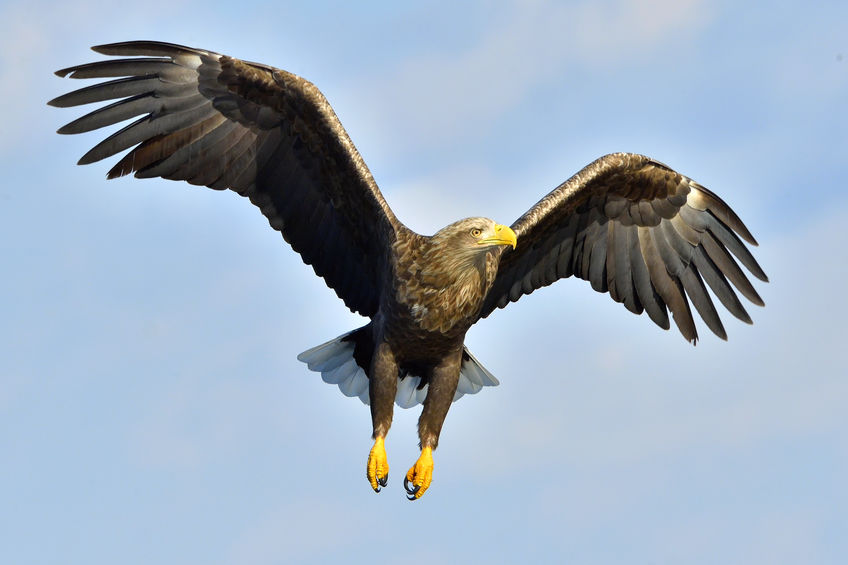
A sheep farming group has said it is 'unsurprised' with Natural England's decision to grant a licence for the release of 60 sea eagles in Norfolk, despite farmers' concerns.
White-tailed eagles, the UK's largest bird of prey, will be released over a 10-year period on the Ken Hill estate, which is operating an ‘early-stage lowland rewilding project’.
The juvenile birds will be sourced from Poland, where there are around 1,000 pairs of white-tailed eagles.
Natural England issued the licence of approval to the Roy Dennis Wildlife Foundation, whose project will start from next year.
But the National Sheep Association (NSA) has said that it came as 'no surprise' that a licence had been issued despite concerns raised by farming organisations.
NSA chief executive Phil Stocker said: “Natural England reportedly examined data from elsewhere in Europe ahead of this decision, but it is not clear that it took into consideration reports closer to home, i.e. Scotland."
In Scotland, there have been repeated calls for an action plan to control the birds that have come to see lambs as a food source.
Farmers there have highlighted frustration by the lack of progress to date in relation to the management of the eagles.
In a report released in 2019, one farm in the country demonstrated a loss of 181 lambs during the period between 2012 and 2018.
Mr Stocker added that Natural England had also 'ignored' requests to focus on and monitor the Isle of Wight population, which were released in 2019 and 2020.
"NSA would have thought it sensible and reasonable to understand the outcomes before going ahead with another release," he said.
"It does seem as though Natural England has gone beyond wanting to test to see if this can work and has made a decision that they want this species established in England.”
White-tailed sea eagles do not usually breed until they are five years of age, and so it will take some time for the population to become established.
However, some of the Isle of Wight birds have now ranged as far as Denmark, as well as to Norfolk, northern England and even into Scotland, according to the NSA.
Farmers' experience in Scotland showed that the birds' releases 'can go seriously wrong', suggesting there was 'not enough wildlife to satisfy the eagle’s food requirements'.
The group has called for an 'exit plan' that specified what actions should take place if concerns became a reality, as had been reported in Scotland.
There was a 'real risk' with apex predator releases that in years to come farmers may be forced to protect their livestock more, the NSA warned, such as housing them and managing them less extensively.
Mr Stocker said: "If this is the case surely this will conflict with a host of other government and public objectives to improve stock health and welfare, reduce antibiotic use, and use resources more efficiently."
